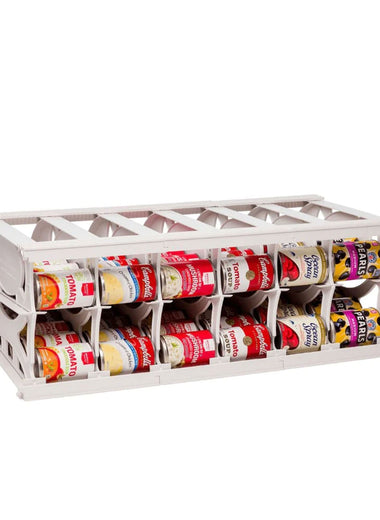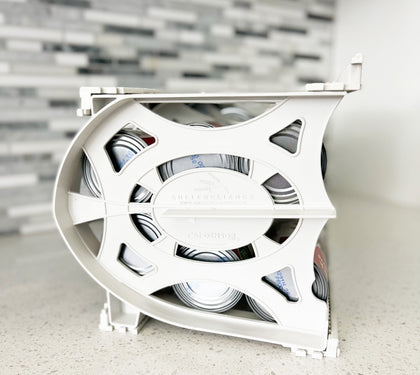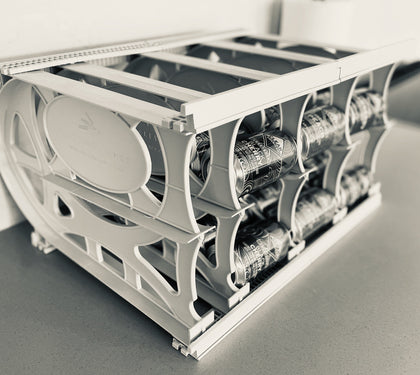Food banks play a vital role in alleviating hunger and food insecurity in communities around the world. To optimize their impact, these organizations must efficiently manage their food inventory. One evidence-based strategy that can significantly benefit food banks is the implementation of a first-in, first-out (FIFO) canned food storage system like Shelf Reliance. In this blog post, we'll explore the numerous advantages of FIFO storage, supported by evidence and expert opinions.
Reducing Food Waste
Evidence shows that a FIFO storage system helps food banks minimize food waste. The Food and Agriculture Organization (FAO) estimates that approximately one-third of all food produced globally is wasted, amounting to nearly 1.3 billion tons annually. FIFO systems ensure that food items with the nearest expiration dates are distributed first, reducing the risk of canned goods going past their use-by dates while in storage.
Maintaining Food Quality
Proper food storage is essential to maintain the nutritional value and taste of canned goods. FIFO practices help food banks preserve food quality by ensuring that older cans are used before newer ones. The University of California's Division of Agriculture and Natural Resources emphasizes that maintaining food quality is crucial for the overall health and well-being of those relying on food bank assistance.
Enhancing Food Safety
Food safety is paramount, and FIFO storage helps food banks adhere to safety standards. The Centers for Disease Control and Prevention (CDC) highlight the importance of minimizing the risk of foodborne illnesses, which can occur when expired or spoiled food is consumed. FIFO reduces the chances of distributing unsafe food items by prioritizing those with the earliest expiration dates.
Streamlining Inventory Management
Efficient inventory management is key to the success of food banks. FIFO simplifies the process of tracking inventory by ensuring that staff and volunteers can easily identify which products need to be used first. This approach saves time and reduces the complexity of inventory management systems.
Improving Donor Relations
FIFO practices also positively impact donor relations. When food banks can demonstrate their commitment to using donated items promptly and responsibly, donors are more likely to continue their support. Evidence from Feeding America, a leading hunger-relief organization, suggests that transparent and responsible food handling practices build trust with donors and increase the likelihood of receiving donations.
Meeting Client Needs
Ultimately, the primary goal of food banks is to provide nutritious food to those in need. Implementing FIFO food storage principles are crucial for food banks to offer clients high-quality, safe, and nutritious canned goods. After all, research published in the "Journal of the Academy of Nutrition and Dietetics" indicates that the nutritional quality of foods distributed by food banks directly impacts the health of recipients.
Reducing Costs
Implementing FIFO storage can also lead to cost savings for food banks. By minimizing food waste and optimizing inventory management, food banks can allocate more resources to their core mission—feeding the hungry.
In conclusion, the evidence strongly supports the adoption of a first-in, first-out canned food storage by food banks. FIFO reduces food waste, maintains food quality and safety, streamlines operations, enhances donor relations, meets client needs, and reduces costs. By implementing this simple system, food banks can maximize their impact and better serve their communities. It's a win-win strategy for both the organizations and the individuals they support. Shelf Reliance has a broad array of large and small canned food organization systems for food banks, business owners, and home owners alike. At Shelf Reliance, our main goal is to help people be prepared, organized, and eat fresh food.














